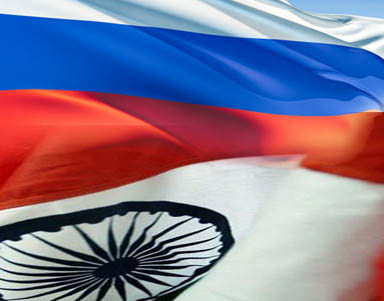India, Russia sign deal for new nuclear plants
 New Delhi, Dec 5 : India and Russia signed a landmark agreement on civil nuclear cooperation today.
New Delhi, Dec 5 : India and Russia signed a landmark agreement on civil nuclear cooperation today.
Prime Minister Dr. Manmohan Singh said while addressing a joint press conference with Russian President Dmitry Medvedev in New Delhi today that Moscow would build four additional atomic reactors in the Koodankulam nuclear plant in Tamil Nadu.
The deal will allow Russia to build more reactors at the Kudankulam nuclear power plant and plants in other parts of the country.
"A major practical result of our meeting has been the signing of the agreement on the construction of additional power units at Kudankulam nuclear power plant and on the construction of new Russian designed nuclear power plant in India," Medvedev, who is on a three-day visit to India told reporters in New Delhi.
Dr. Singh called the agreement as a historic milestone between the relations of two countries.
"The signing of the agreement on civil nuclear cooperation with Russia marks a new milestone in history of our cooperation with Russia in the field of nuclear energy," said Singh.
The two countries also signed nine other pacts and agreements including a Memorandum of Understanding (MoU) between the Indian Space Research Organization
(ISRO) and the Russian Federal Space agency on manned space mission.
In an important decision, Russia has agreed to provide India eighty MI-17 helicopters.
Both the countries also decided co-operation in the areas of tourism and enhancement of trade and commerce.
After signing the joint declaration the Indian Prime Minster said that the two countries have decided to increase the trade volume to ten billion dollar in two years.
The two leaders also discussed the possibilities of greater co-operation between Indian and Russian companies, both in upstream and down stream sectors.
Decisions were made to intensify co-operation in the energy sector and promote co-operation in the oil and gas sector in India, Russia and other countries.
Both India and Russia emphasized the importance of comprehensive reform of the international financial and economic architecture in tune with the new realities in the global economy.
The deal comes after India signed a nuclear pact with the United States earlier this year, giving New Delhi access to civilian nuclear fuel and technology on the international market for the first time in three decades.
Overturning a U. S. ban on nuclear trade instituted after India first tested an atomic device in 1974, the U. S. pact provides India with access to nuclear fuel, reactors and technology to generate power for its 1.1 billion plus people.
Russia is competing with the United States for influence in India, a cold war ally of Moscow, which the Kremlin sees as a growing partner in Asia.
But India, which wants to buy billions of dollars of weapons as it rearms, has been unhappy with holdups on major Russian arms contracts, including a delay to a 1.5 billion dollar aircraft carrier modernisation.
India, along with China, is one of Russia''s biggest clients for arms sales. (ANI)